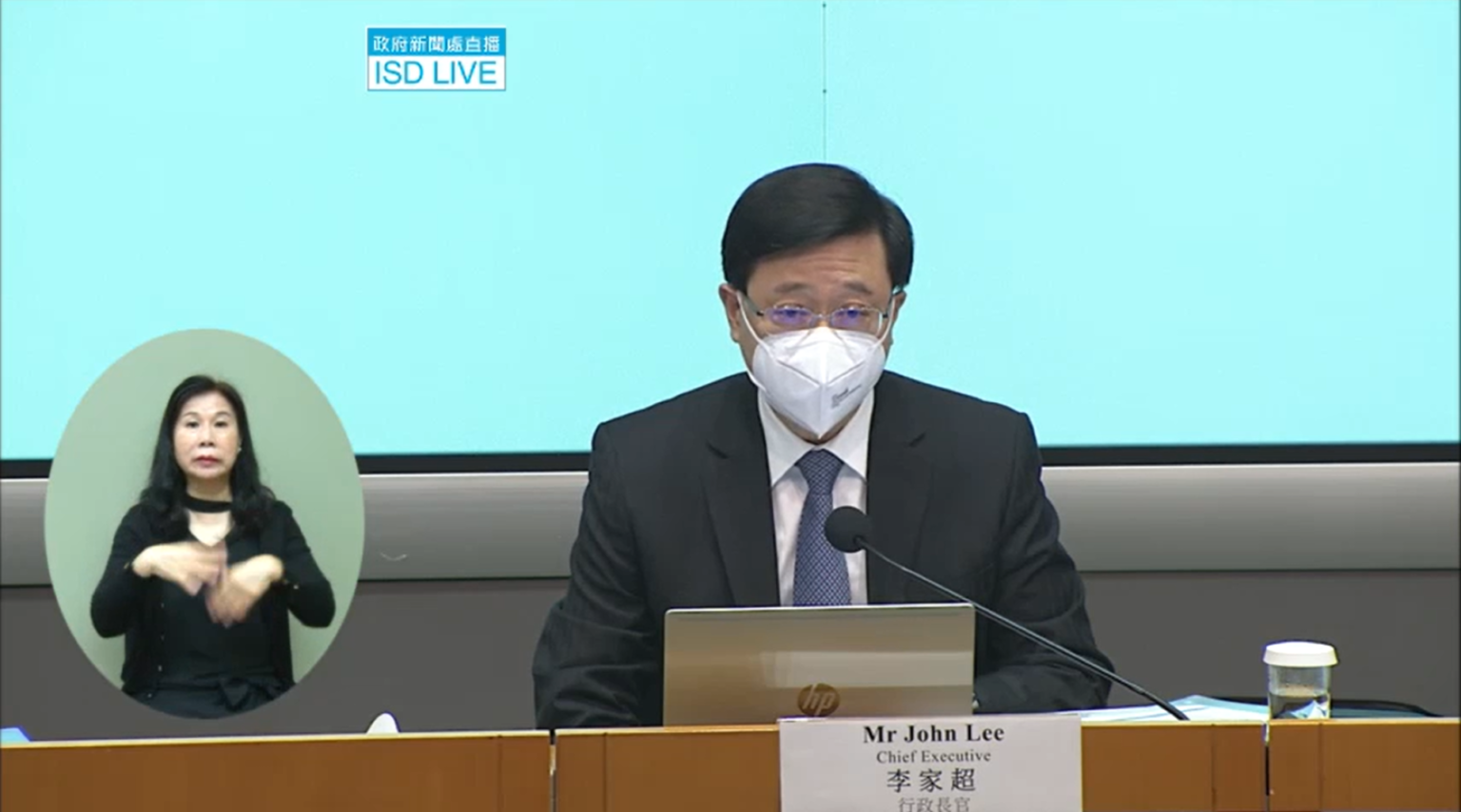Travellers arriving into Hong Kong will have to spend three days at a Designated Quarantine Hotel (DQH) and then isolate for four days at home, starting August 12, said Chief Executive John Lee Ka-chiu. At a press conference on Monday, Lee added that the government will introduce a new health code for inbound travellers and confirmed local Covid-19 patients.
The health code will be combined with the vaccine pass system on the LeaveHomeSafe app. Travellers will get a yellow code once they begin their medical surveillance/home isolation period, which will prevent them from going to areas where they could potentially transmit the virus to large groups of people, such as pubs, restaurants, hair saloons and theme parks.
“What we have recommended now of three days’ quarantine in designated hotels is after examining the scientific evidence and the data. [This] gives us the indication that the risk factor of people having finished three days quarantine in designated hotels… is actually no more than the risk level of transmission in society,” said the CE when asked about the rationale behind the reduced hotel quarantine period.
What are the new quarantine arrangements for travellers?
Under the existing restrictions, Hong Kong-bound passengers must stay at a DQH for at least seven days. From August 12, the day of arrival into Hong Kong will be considered Day 0, said Secretary for Health Lo Chung-mau. Travellers who test negative on their Day 2 PCR can check out of their DQH at 9 am the next day and begin their home isolation period. International arrivals who do not have a residence in Hong Kong may complee their medical surveillance period at non-DQH hotels.
Inbound travellers who have already made reservations for a seven-day DQH stay do not have to cancel their bookings and make new ones. Instead, they can check out the next day if their Day 2 PCR test is negative and later get a refund for the four unused days of their bookings.
Travellers must also get tested more frequently for Covid-19 during the first 10 days after their arrival into Hong Kong. They must undergo PCR tests on Days 1, 2, 4, 6, and 9 after they land in the city, and take RATs every day until Day 10.
The move, which media reports said was supposed to be announced last week, comes after the new government made changes to requirements for airlines and inbound travellers to strike a balance between reducing restrictions on travellers and curbing the spread of the virus within the city.
In July, authorities suspended the five-day ban on flights that brought in a certain number of passengers who tested positive for Covid-19 upon arrival into Hong Kong from specific points of origin. They also added a Day 3 PCR test for inbound travellers to undergo while under quarantine, the data from which was used to determine the new quarantine measures.
How does this impact travel with the Mainland?
When asked about how the new measures to open Hong Kong’s international borders will impact the prospect of quarantine-free travel between the SAR and the Mainland, Lee said that the two goals are not contradictory. The CE emphasised that the government is working towards making travel to the Mainland convenient, while taking their quarantine restrictions into consideration.
“We have to work towards both measures — to make travel in and out of Hong Kong through the airport as easy as possible, and make travel in and out of the Mainland as easy as possible. We know that the Mainland has their standard of ‘7+3’ [days of hotel quarantine and home isolation, respectively]. We will respect that in our discussion with our counterparts in the Mainland. We have to ensure that they feel confident that any measures that we take will not create extra risk to their public health,” said Lee.

Header image credits: Hong Kong Government




